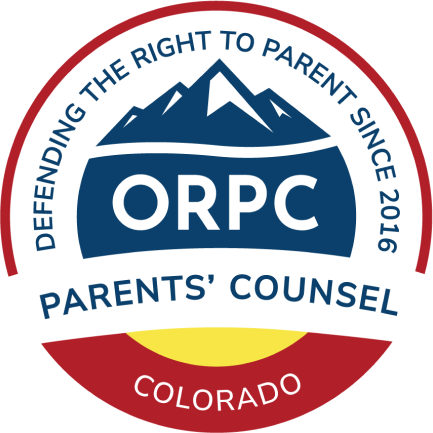New Colorado law aims to give some incarcerated people chance to parent from prison
By Kristin Jones / The Colorado Sun
Read the full article on The Colorado Sun website.
When Pamela Clifton was sentenced to prison for a drug offense in the late ’90s, she had two small children, then 4 and 7. Her husband had recently died, so she was their only living parent. When Clifton was incarcerated, the kids went into foster care, and her right to see her children — and their right to a relationship with their mother — was terminated.
“I never knew where my kids were, if they were safe, if they were happy,” Clifton told Colorado legislators in April. “When they terminated my rights, they told me I could write them a goodbye letter.”
Clifton was testifying in support of a Colorado law intended to make it more difficult to terminate parental rights because of long-term incarceration. Senate Bill 39, which passed this year with bipartisan support, requires courts to include incarcerated parents in dependency and neglect hearings, and to consider whether a child has a “meaningful and safe relationship” with an incarcerated parent before making a decision to terminate rights. Terminating parental rights is considered a kind of death sentence for families involved in the child welfare system because it is intended to sever bonds for the duration of childhood.
Colorado parents who have been incarcerated say the new law is an acknowledgement of something they’ve always known: People don’t stop being parents when they go to prison.
“Just because people made bad choices, doesn’t mean they don’t love their kids. Everyone deserves a chance to make things right,” says John A., who has seven children, some of whom he was able to stay in contact with while he was incarcerated and others he wasn’t. He asked that only his last initial be used to protect his family’s privacy.
While incarcerated, he said, “your children are the only hope you have. From the children’s point of view, they want to know that their dad is OK. They want to know that their dad loves them. They don’t want to feel like ‘Dad didn’t love me enough.’”
Parenting from jail or prison has never been easy. Advocates say that while this Colorado law represents progress toward keeping more families together, significant barriers remain.
Jails and prisons temporarily shut down in-person visits during COVID, and children lost crucial bonding time with their parents. Some current and former spouses, family members and foster families are too far away to visit, or unwilling or unable to bring children to regular visits with their parents. Phone calls are expensive, though that is set to change. Opportunities for in-person visits in prisons are limited to a few hours a week, and county jails are even more restrictive. And some of the most promising avenues for incarcerated mothers to maintain their relationships with their children shut down even before COVID, and haven’t returned.
Still, Colorado parents who have been incarcerated say there’s nothing more important to them — and their children.
Incarcerated for years, but still a mom
Terrina Flora-Alexander’s son Addison was just 6 years old when she was incarcerated. She was later convicted of second-degree murder. He still has memories of a warm family life before she suddenly went away.
Flora-Alexander tells her story to anyone who asks. She told it in September to a group of lawyers who had convened in Breckenridge for the annual conference of the Colorado Office of Respondent Parents’ Counsel, and then shared it on Facebook Live.
When Addison first climbed into her lap after she was sentenced to prison, he buried his face in her hair. It smelled like her, he told her. In the prison commissary, she’d been able to find the same shampoo she had always used, and she started smearing it on the gifts she sent to her son. Flora-Alexander crocheted him a blanket, and sent him a pair of socks with a message of love written on them. She wrote him letters all the time, telling him to do his best, telling him that she loved him and missed him. She kept in touch with his teachers. She called him.
“The most important thing in my life was my son,” Flora-Alexander says. She knew she had to fight to be in her child’s life, and that guided her decisions while she was incarcerated.


